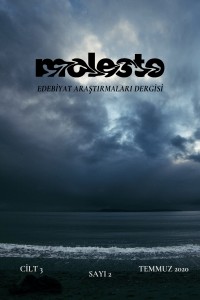Abstract
The well-known Russian writer Eduard Limonov, aka Eduard Savenko, was a political activist. He lived the hard experience of the maximum security prison Lefortovo from 2001 to 2003. In the two years of imprisonment he wrote eight books; all have been published; all, explicitly or indirectly, in an exclusive or allusive way, represent the daily life of the prisoner Limonov and describe his external reality and his inner world.
The prison is an occluded surface, devoid of landscape and horizon, where every event appears magnified and where every man is the same as the other, whether criminal, prison guard or saint.
For Limonov the place of confinement becomes a sort of monastic cell, in which he experiences a visionary dimension, a vivid representation of his hidden perceptions. The prison then turns into a meeting place for another self, which is, paradoxically, truly free and pacified.
This contribution primarily aims to reconstruct the multiple identity paths that Eduard Limonov finds himself following, meeting his other ideal realizations in remote times or places of the Russian land, to reach a new self-awareness. Secondly, it tries to compare Limonov’s existential and literary experience with that of other Russian contemporary writers, who shared a similar fate.
Keywords
References
- Professor Raniero Speelman
Details
| Primary Language | English |
|---|---|
| Subjects | Creative Arts and Writing |
| Journal Section | Makaleler |
| Authors | |
| Publication Date | July 31, 2020 |
| Published in Issue | Year 2020 Volume: 3 Issue: 2 |

